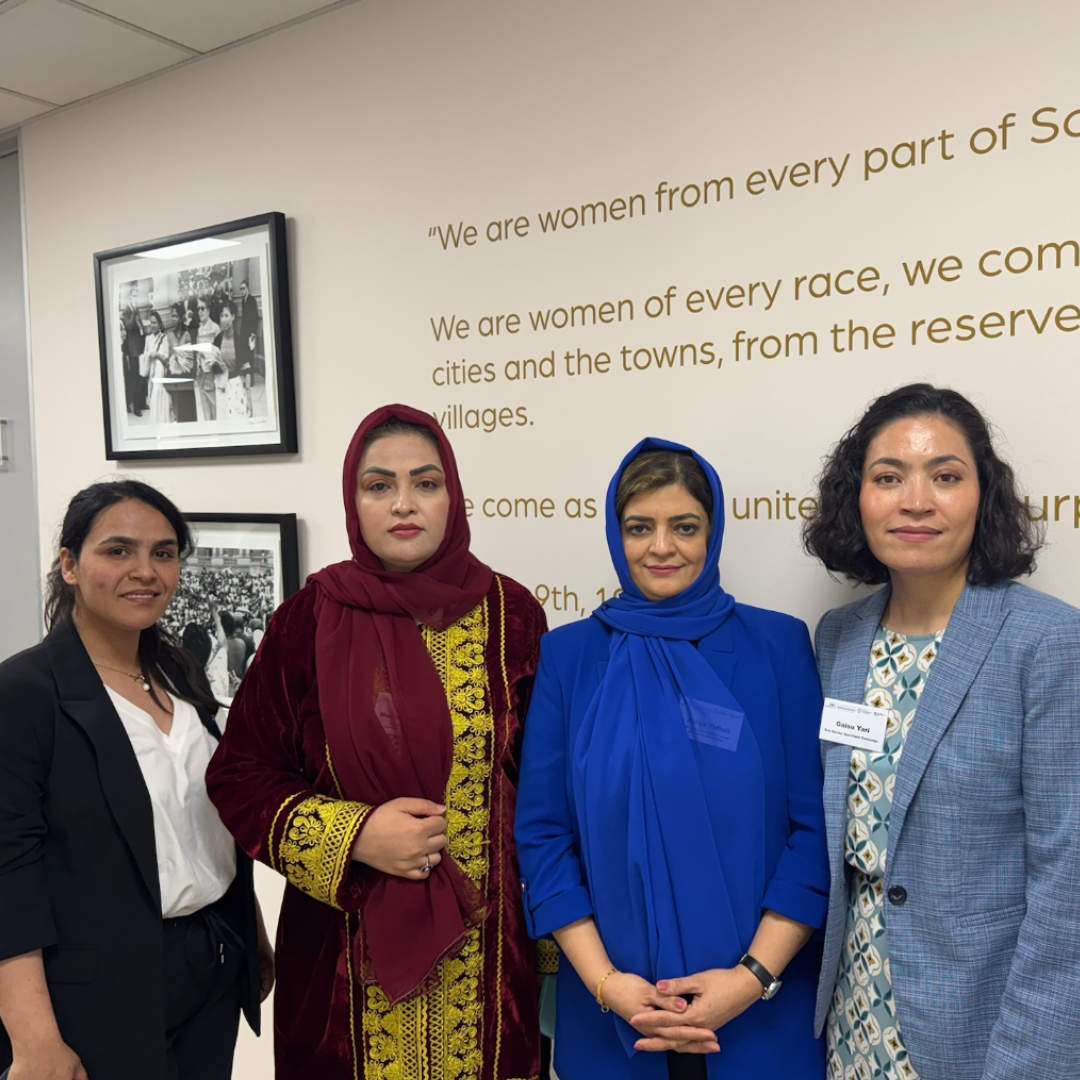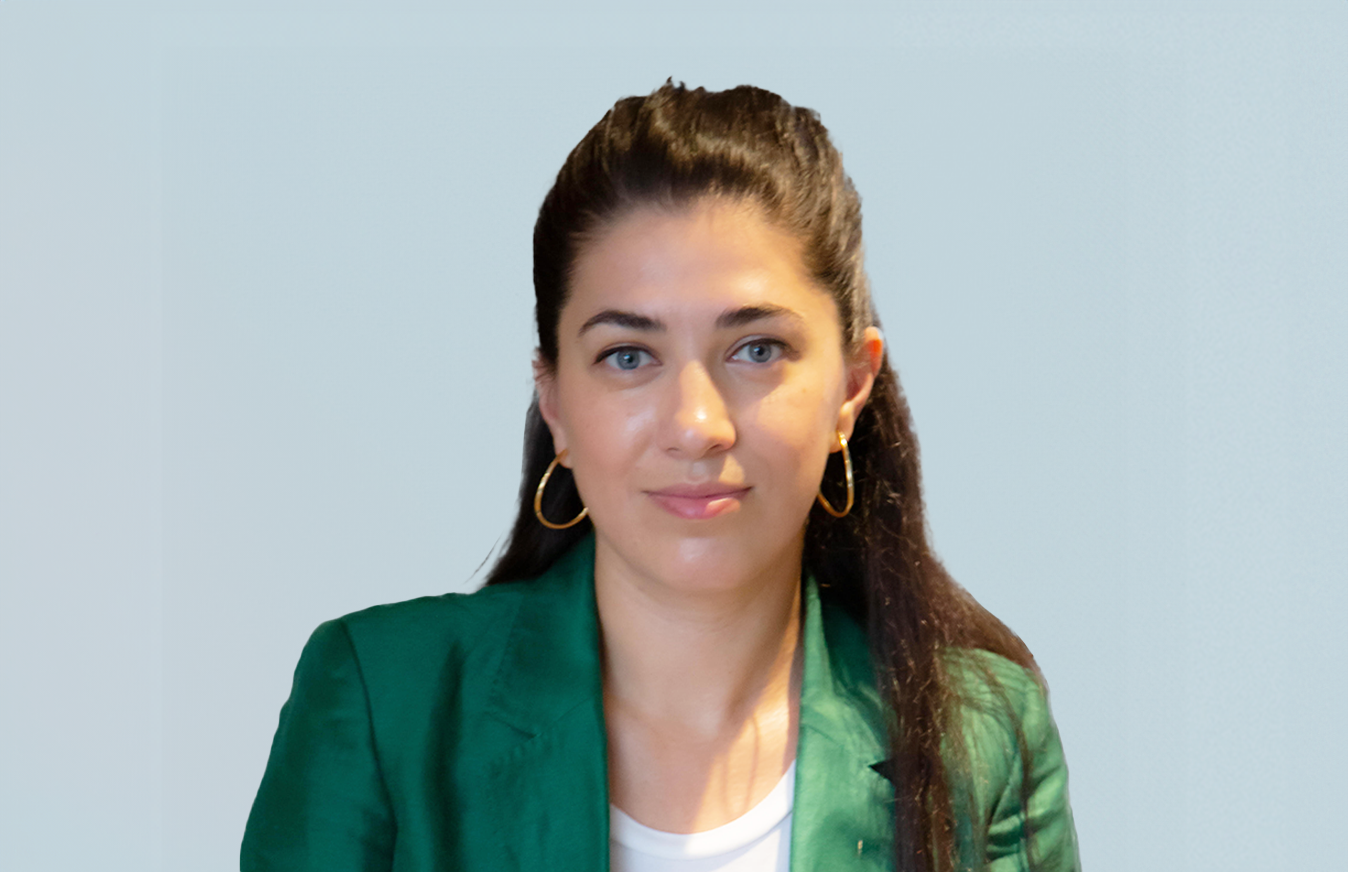
The question is no longer whether gender apartheid exists. It’s whether the world has the will to end it.
Afghan women and girls are facing a fourth year of systemic erasure — banned from education, work, health care and public spaces by the Taliban — and Pakistan is beginning to deport thousands back into that system. In this context, Malala Fund and our partners brought people together in Johannesburg, Cape Town and at Stanford University this month to build the legal and political momentum needed to confront gender apartheid as a system of political control.
These meetings built directly on the work Afghan women have been leading for years: to name the system they are fighting, sharpen the legal frameworks needed to dismantle it and expand global alliances capable of shifting it. They moved beyond raising awareness, focusing instead on coordination and action.
The delegation's discussion surfaced an urgent lesson: in the struggle against racial apartheid, formal justice processes left the specific experiences of Black women, the gendered harms they endured, unaddressed. This exclusion continues to shape lives today. For Afghan women and girls confronting a regime designed to erase them entirely, this history offers a stark warning — that ending apartheid is not only about dismantling legal structures but about ensuring that women are not once again written out of the struggle for liberation.
Here are five priorities guiding our work right now.
1. Learn from those who have dismantled apartheid before
For Afghan activists, South Africa’s support is crucial to advance the codification of gender apartheid in international law. In Johannesburg, a delegation of Afghan women leaders — including Zahra Joya, Zarqa Yaftali, Rahela Sidiqi, Horia Mosadiq, Munisa Mubariz and others — began building an alliance with South African jurists, human rights leaders, activists and movement elders who helped bring down apartheid and grapple with its legacy to this day.
Through visits like this, Afghan activists are drawing from South Africans’ experience with combating state-sponsored exclusion and expanding solidarity for their cause. From discussions at the Nelson Mandela Foundation to the prison cells of Constitution Hill, the message was clear: confronting systemic injustice begins with naming it.
As South African human rights lawyer Professor Bonita Meyersfeld explained: “Gender apartheid is a governing system. Afghan women are not just facing discrimination; they are being legally and politically erased. They cannot go to school, hold jobs, access health care or appear in public. This isn’t just a cultural or religious practice. It’s a systemic and codified strategy of control.”
2. Name the crime and make it legally accountable
At Stanford University, Afghan advocates and legal experts came together to explore the legal, social and international implications of gender apartheid in Afghanistan and the international response required.
Codification would move beyond political statements. It would create legal obligations for how governments deliver aid, engage diplomatically and protect refugees — especially critical as thousands of Afghans face forced deportations from Pakistan back into Taliban control.
Without legal recognition, systems of exclusion and domination are treated as cultural or religious manifestations, rather than deliberate crimes. Recognition would close the gap — and force action.
3. Follow Afghan women’s lead
Too often, Afghan women are invited into global conversations as witnesses rather than experts and decision-makers. In Johannesburg, Cape Town and at Stanford, they set the agenda.
Delegates and our partner organisations are not only documenting violations but building political and legal strategies for change. Journalist Zahra Joya and Rukhshana Media are breaking the silence the Taliban seek to enforce. Human rights advocates like Gaisu Yari and Zarqa Yaftali are sharing the legal framework and building the political will required to hold the Taliban accountable. Experts like Metra Mehran and Halima Kazem are building the expert literature to make the case for gender apartheid.
As Gaisu Yari said in an interview: “We are not victims to be rescued. We are experts building the solutions the world needs to follow.”
4. Build a long-term strategy, not a short-term response
Gender apartheid is not a temporary crisis. It is a system that demands sustained resistance and investment.
Malala Fund’s 2025–2030 strategy centres the recognition and dismantling of gender apartheid in our global advocacy. This includes:
Investing in Afghan-led organisations advancing girls’ education access and legal change
Securing strategic partnerships to include gender apartheid in the proposed Crimes Against Humanity Treaty
Backing Afghan advocates at global forums shaping accountability mechanisms
Deploying crisis funding to protect displaced students and pressure governments to halt deportations
Ending gender apartheid requires political, legal and financial commitment over time. It’s a coordinated, long-term effort to confront a system of injustice — and stand with the women fighting to dismantle it.
5. Grow the global coalition for action
The movement to end gender apartheid is already global — and growing.
In South Africa, partnerships with groups like Lawyers for Human Rights, the End Gender Apartheid Campaign, the Civic Engagement Project and the Nelson Mandela Foundation strengthened our collective voice. In the U.S., we co-sponsored and collaborated on a symposium with Stanford University and the Strategic Litigation Project to move legal strategy forward. In New York, Catharsis Arts Foundation and Atelier Jolie helped bring the voices and stories of young Afghan girls — students continuing to learn through our grantee partner Rahela Trust — to a wider audience.
Afghan women and girls have provided the legal arguments, the political case, the real-life testimonies and the moral clarity. The responsibility to match words with sustained action now lies with all of us and with governments, institutions and movements willing to choose justice over complicity.
